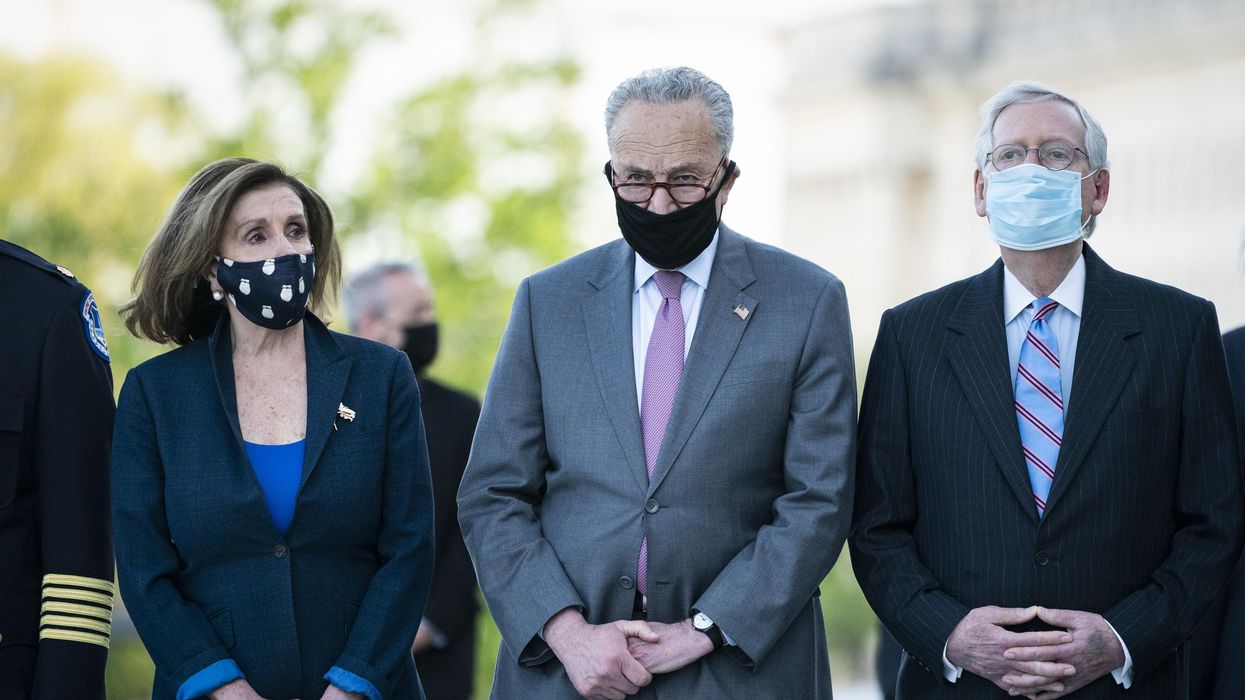Pundits and journalists have expressed doubts about the future of the For the People Act since it was introduced, and continue to label it "dead" in article after article. The reality is that the landmark voting rights bill has never been closer to getting passed — but the window to do so is quickly closing.
Of course, we're well aware of the main hurdles in the way. It's true that not a single Republican senator supports the bill. And yes, because of that, we face the obstacle of the filibuster. But Senate Majority Leader Chuck Schumer is laying the groundwork to bring along hesitant colleagues and break the logjam.
You see, a complicated game of chess is playing out in the Senate. In the wee hours of the night last week, Schumer introduced three pieces of legislation: the For the People Act, as well as a stand-alone anti- gerrymandering bill and a stand-alone dark money"disclosure" bill. Republican Ted Cruz immediately filibustered the bills. At 4:30 a.m., just before adjourning for August recess, Schumer declared, "Republicans have formed a total wall of opposition against progress on voting rights. That's what we have come to: total Republican intransigence."
Let's step back for a second. In the last two months, Republican senators on four occasions have blocked debate from starting on legislation to set common-sense baseline voting standards, end gerrymandering and get big money out of politics. These are issues that all have overwhelming bipartisan support in the country — particularly gerrymandering, which 89 percent of voters oppose.
Prior to the latest filibuster of the bills, Democratic Sen. Joe Manchin tried to win Republican support for a compromise bill that set a national voter ID standard. Minority Leader Mitch McConnell called that good-faith negotiation attempt "comic relief."
But Schumer is moving the pieces into place to pass the For the People Act, despite Republican opposition. He is forcing his Democratic colleagues to realize an unfortunate truth: Republicans in the Senate have shown us time and time again that there is no proposal — no matter how popular or how historically bipartisan — that they're willing to support.
By bringing voting rights to the floor again, Schumer sent a message before leaving town. If passing popular standalone pieces of legislation like the Redistricting Reform Act won't get 10 Republicans, if passing reasonable voting protections that includes a voter ID standard won't get 10 Republicans, Democrats in the Senate must come to terms with the reality that there is nothing of value in the democracy space that will get Republican support. So they must take the only alternative route forward: filibuster reform.
Manchin and others continue to voice concerns about ending the filibuster, but they must now see they have no other options. Democracy depends on Democratic senators figuring out how to end gridlock on voting rights and enact filibuster reform.
There is no time to waste. The Census Bureau delivered population data to states last week, kicking off the redistricting process that could see unprecedented gerrymandering aided by powerful supercomputers and the blessing of the Supreme Court. RepresentUs' Gerrymandering Threat Index shows that 35 states are at "extreme" or "high" risk of partisan gerrymandering. That's why we partnered with the Princeton Gerrymandering Project on a Redistricting Report Card to detect gerrymandering and grade each state's proposed maps. If the Senate doesn't pass federal anti-gerrymandering reform immediately when it reconvenes, we could be stuck with bad voting maps for the next decade.
With the Senate in recess, now is the time to call and write your senators and urge them to support the For the People Act. Because Schumer said that when the Senate comes back next month, the bill will be first on the agenda. Make no mistake: Democratic senators know how to move this bill forward reforming the filibuster. They know they have no other choice.



















Trump & Hegseth gave Mark Kelly a huge 2028 gift